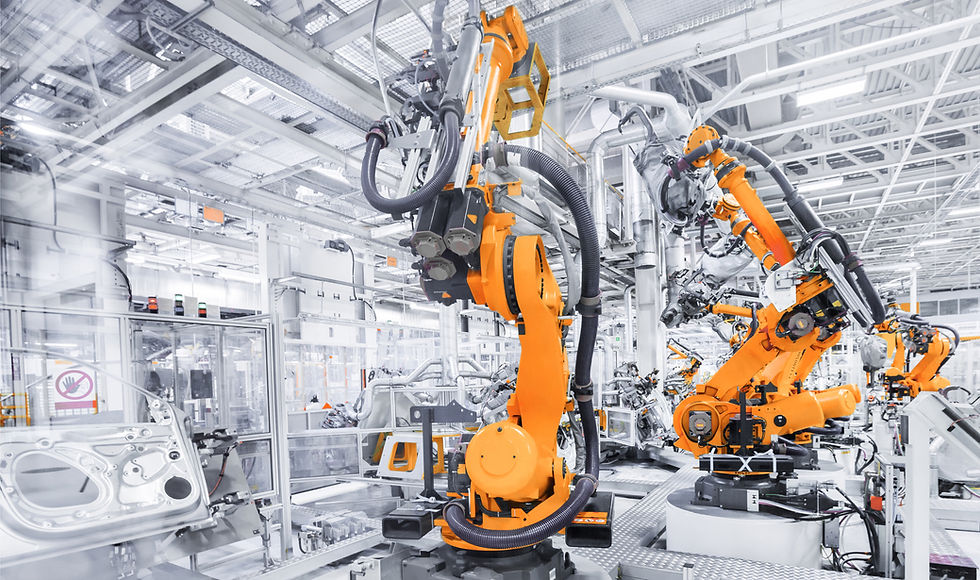McDonalds-ALDI cooperation model, a creative example for Economic Development Organizations (EDOs)?
- Markus van Tilburg
- Mar 26, 2020
- 4 min read
Thinking out of the box during COVID-19

During the past weeks, the global pandemic spread of COVID-19 has disrupted the way of doing business and our personal routine in a way, that most people could not have never imagined. ‘Social Distancing’ became a buzzword, similar, to many traditional businesses, our social components of life have shifted even more into the digital world. Most of us are working from home and are communicating through video conferences and phone calls with colleagues, customers and even with friends. Digital work environments allow us to collaboratively work on documents in virtual teams and a lot can be done from home.
HOWEVER, the majority of businesses from economic sectors like manufacturing, transportation and warehousing, retail trade or wholesale trade, travel, food and other services, need the physical presence of their employees at work. The COVID-19 virus has affected the above-named economic sectors in different ways and caused in some cases a total breakdown of business.
One side, of the short-term economic effects is for example, that medical device manufacturers, grocery stores, construction markets, pharmacies and online stores including the associated logistic chains are under extreme demand stress by customers and are having difficulties to find workers right now. On the other side, for example the automotive industry, restaurants, food services and retailers are running on a minimum or have been closed. Those businesses are fighting to find solutions to not let go their employees.
A great example on how to move fast and adapt to the situation is the human resources (HR) cooperation between the German grocery market chain ALDI and the US fast-food chain McDonalds, that was announced on March 20th. McDonalds had to close most of its restaurants in Germany and signed an HR agreement with ALDI. ALDI specifically needed more workforce for logistics, warehousing and in the grocery stores itself. The McDonalds workforce hired by ALDI received a temporary work contract and can return to the old McDonalds job after the crisis. For both companies the deal creates a win-win situation and even more importantly many persons will not lose their jobs!
What can Economic Developers and Investment Promotion Agencies learn and adapt?
The job of all persons working in economic development is to foster growth of the local economic ecosystem and to be a facilitator empowering new and existing business to be more successful.
The most important component for EDOs to be successful is probably a flexible pro-active approach and fast adaption to new situations. In order to adapt fast:
1. Know your way around – EDOs should know the exact economic sector structure, number of businesses and employees within their territory. Biggest employers and sectors with most employees need to be monitored. Key account management can help to stay in touch with key decision makers and help to identify red flags at an early stage -> company retention
2. Be connected – EDOs should be able to facilitate business and bring the right decision makers together. This includes contacts to other government agencies, multipliers and most importantly to businesses within your territory -> Key Contacts / Aftercare
3. Stay on top of things – EDOs can easily get lost in daily routines and internal processes. Track global and local economic changes as well as your competitors. COVID-19 provides the advantage, that it did not start simultaneously around the world. For example, the development in Korea is a few weeks ahead of Germany, the UK is a week behind Germany and the US is around 2-3 weeks behind Europe in this scenario. By watching the economic development closely, you can already identify patterns and creative ways of handling the situation. -> Best practice / Benchmarking
Having the knowledge from points 1.-3. - EDOs should be able to precisely identify local industries and workforce that is affected most by COVID-19. It should also be easy to identify economically benefitting industries within your territory. To follow the creativity of ALDI and McDonalds, an EDO could work as a matchmaker and proactively bring companies together. The result of an EDO guided company matchmaking and information exchange process could have various outcomes:
- cooperation in HR, similar to ALDI and McDonalds
- cooperation to extend production capacities, if suitable
- cooperation of sharing logistic capacities
- cooperation of sharing space or certain machinery
There is no limit to find ways of potential cooperation that alleviates the hard-economic impact of COVID-19. EDOs can play a powerful role within this process and proof to be a valuable partner for the local business community. If you decide to pro-actively communicate with your local companies to identify opportunities, you might find out about unexpected new ways of cross-sector cooperation. This is a model that can empower EDOs to play an important active role helping industries that have been hidden hart by COVID-19.
I would love to hear from your experiences or potentially other examples of EDOs thinking out of the Box in this new situation. Just leave me a message on LinkedIn or send me an email to Info@global-aldea.com




Comments